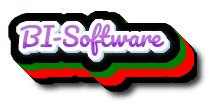In today’s fast-paced business environment, managing customer relationships is crucial for success. Customer Relationship Management (CRM) software has become an essential tool for businesses to streamline their sales, marketing, and customer service operations. With numerous CRM software options available, it can be challenging to choose the right one for your business. In this article, we will analyze CRM software, its features, benefits, and provide a comprehensive guide to help you make an informed decision.
<img src=”https://www.predictiveanalyticstoday.com/wp-content/uploads/2017/10/Top-CRM-Software.png” alt=”Analyzing CRM Software: A Comprehensive Guide” />
What is CRM Software?
CRM software is a type of application that helps businesses manage their interactions with customers, clients, and prospects. It provides a centralized platform to store customer data, track sales, marketing, and customer service activities, and analyze customer behavior. CRM software enables businesses to build strong relationships with their customers, improve customer satisfaction, and increase revenue.
Key Features of CRM Software
A good CRM software should have the following key features:
- Contact Management: Allows you to store customer contact information, such as names, email addresses, phone numbers, and social media profiles.
- Sales Management: Enables you to track sales activities, such as leads, opportunities, and closed deals.
- Marketing Automation: Automates marketing tasks, such as email campaigns, lead generation, and social media management.
- Customer Service: Provides tools for customer support, such as ticketing systems, knowledge bases, and chatbots.
- Analytics and Reporting: Offers insights into customer behavior, sales performance, and marketing effectiveness.
- Integration: Integrates with other business applications, such as email clients, social media platforms, and accounting software.
Benefits of CRM Software
Implementing CRM software can bring numerous benefits to your business, including:
- Improved Customer Relationships: CRM software helps you understand your customers better, enabling you to provide personalized experiences and build strong relationships.
- Increased Sales: By streamlining sales processes and providing real-time insights, CRM software can help you close more deals and increase revenue.
- Enhanced Customer Service: CRM software enables you to respond to customer inquiries promptly and effectively, improving customer satisfaction and loyalty.
- Better Decision Making: CRM software provides valuable insights into customer behavior and sales performance, enabling you to make informed decisions and drive business growth.
- Increased Efficiency: CRM software automates routine tasks, freeing up time for your team to focus on high-value activities.
Types of CRM Software
There are several types of CRM software available, including:
- On-Premise CRM: Installed on your company’s servers, providing full control over data and customization.
- Cloud-Based CRM: Hosted in the cloud, providing scalability, flexibility, and cost-effectiveness.
- Open-Source CRM: Free or low-cost CRM software, offering customization and community support.
- Mobile CRM: Accessible on mobile devices, enabling sales teams to manage customer relationships on-the-go.
Popular CRM Software Options
Some popular CRM software options include:
- Salesforce: A cloud-based CRM platform offering a wide range of features and customization options.
- HubSpot: An all-in-one CRM, marketing, and sales platform providing tools for inbound marketing and sales.
- Zoho CRM: A cloud-based CRM software offering affordable pricing and a user-friendly interface.
- Microsoft Dynamics 365: A comprehensive CRM platform integrating with Microsoft Office and other business applications.
How to Choose the Right CRM Software
With so many CRM software options available, it can be challenging to choose the right one for your business. Here are some factors to consider:
- Business Size and Type: Choose a CRM software that caters to your business size and type, such as small business, enterprise, or non-profit.
- Features and Functionality: Identify your business needs and choose a CRM software that offers the required features and functionality.
- Scalability and Flexibility: Select a CRM software that can grow with your business and adapt to changing needs.
- User Interface and Experience: Choose a CRM software with an intuitive user interface and a positive user experience.
- Integration and Compatibility: Ensure the CRM software integrates with your existing business applications and systems.
FAQs
- What is the cost of CRM software?: The cost of CRM software varies depending on the provider, features, and number of users. Prices can range from $10 to $100 per user per month.
- Is CRM software difficult to implement?: Implementing CRM software can be challenging, but many providers offer onboarding support, training, and customization services to ease the process.
- Can CRM software be customized?: Yes, many CRM software options offer customization capabilities, allowing you to tailor the system to your business needs.
- Is CRM software secure?: Reputable CRM software providers prioritize data security, offering features such as encryption, access controls, and regular backups.
- Can CRM software be used on mobile devices?: Yes, many CRM software options offer mobile apps, enabling sales teams to manage customer relationships on-the-go.
Conclusion
CRM software is a powerful tool for businesses to manage customer relationships, improve sales, and enhance customer satisfaction. With numerous CRM software options available, it’s essential to analyze your business needs and choose a software that caters to your requirements. By considering factors such as features, scalability, and user experience, you can select a CRM software that drives business growth and success. Whether you’re a small business or a large enterprise, CRM software can help you build strong relationships with your customers, improve sales performance, and increase revenue. Take the first step towards improving your customer relationships and business operations by exploring the world of CRM software today.
<h2>Closure</h2>
Thus, we hope this article has provided valuable insights into Analyzing CRM Software: A Comprehensive Guide. We appreciate your attention to our article. See you in our next article!
